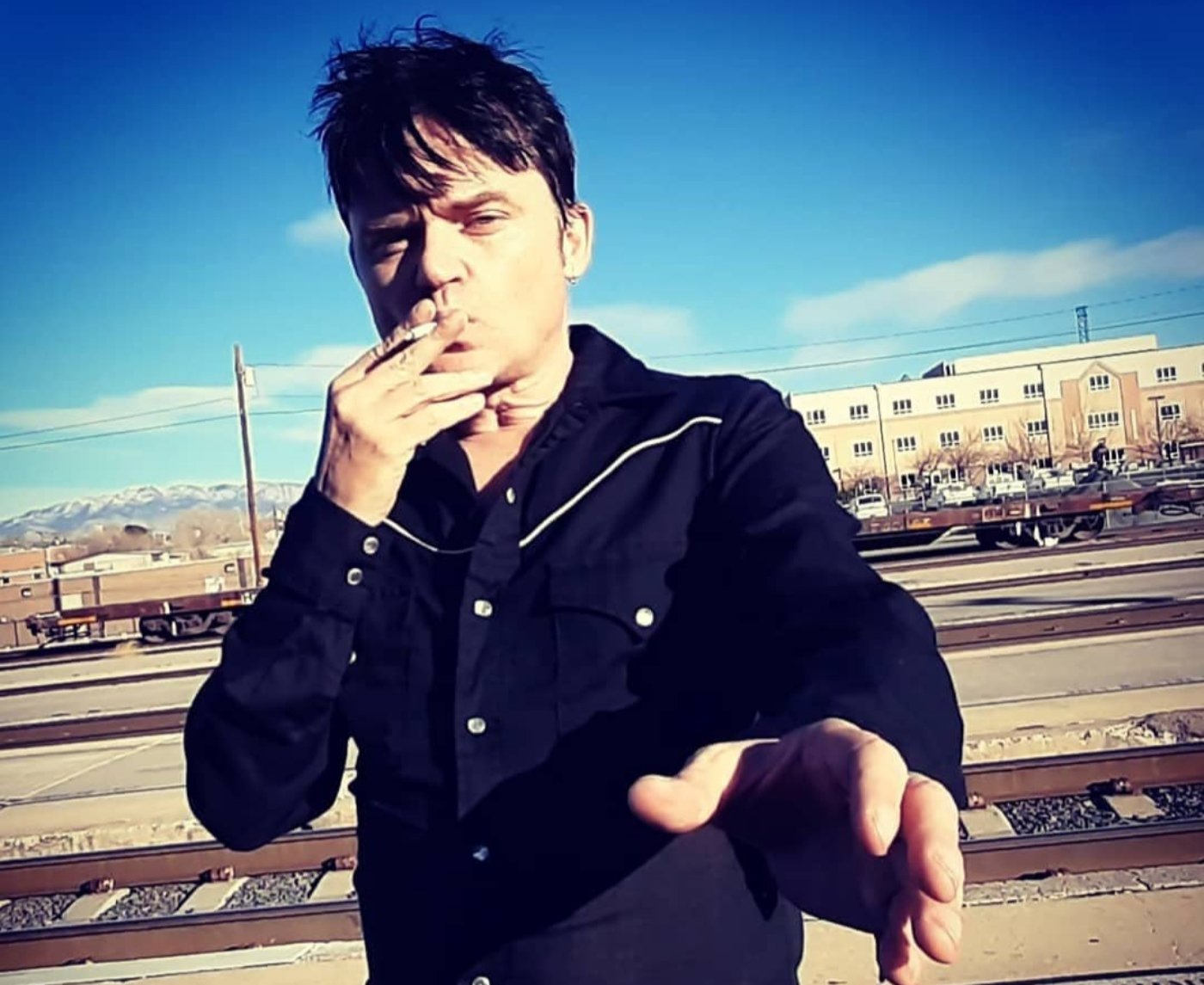The Other Side of the White Picket Fence
RACHEL SOO THOW - 19 AUG 2021
PHOTO SUPPLIED
The dirty thirties.
Desires, needs and expectations are semantically distinct: the milestones, the checklists, and our variations on crossing the t’s and dotting the i’s seem to have a quickening effect on us daydreamers. What does it mean to be thirty? Age is but a number, right? But the anxiety is real. And growing. The number seems to imply an imaginative subject - the image of a hamster running on a wheel but never stopping. The great unwrapping of your thirties seems to leave everyone else around you in breathless anticipation to what you might tick off the checklist next.
As a thirty-two-year-old myself, the thirties come across as an object that has taken on the shine of glamour, first for others, and then for the rest of us. This augmenting factor in ‘reaching your thirties’ comes with muted admiration, identification and developmental success. Indeed, the churning wheels of capitalism depend upon it don’t they? The engagement, the ring, the weddings, mortgages, pets, investment properties and the fact that it costs on average $250k to raise a child? Yeah, that’s bloody anxiety-inducing alright. This unease seems to be silently suffocated, and discussions around these so called ‘checklists’ are uncovered in conversations had over wine and beer with other like-minded individuals. But why are these feelings not expressed openly? Perhaps because of the shame that comes with not ticking off any of these boxes yet.
I’m living in a flat, single, and becoming a workaholic, but at this moment in time I love it. I’ve tried to quieten down the demons that surface when meeting others in my age bracket - the long-term relationships they’re in, their talks of buying property - suddenly, it brings me right back to the hovering checklist. But where did this checklist stem from really? The details of human hopes are surely beyond the imagination of other creatures, but society has indeed played a huge role in clearly indicating the certain intrinsic aspirations of what it means to be a successful human being. These chemistries lead our fellow friends and family to set out energetically to investigate and explore their worlds; to seek available resources and make sense of the contingencies in their environments. These same systems give us the impulse to become actively engaged with a world that only requires us to meet these milestones in order to feel ‘seen’ and validated, thereby extracting meaning from our various circumstances and our feelings in going willingly with ‘the system’.
Attachment and separation anxiety are primitive evolutionary mechanisms shared by all humans. Being single in your thirties has felt like a disappointment that can only be felt when the questions of “How old are you?” and “Do you have children?” surface at family gatherings. The lure of dating apps seems to be an illusive possibility in squashing these questions, but beware your bearings - the fish you’ll find in the sea really does meet the stereotypes. I had a conversation with a friend a week ago regarding this very ‘fish’ – the effort, the time, the apps that allow women to make the first move. What if we don’t want to make the first move? Is chivalry dead? Are all the good ones taken when you reach your thirties? The resounding ‘yes’ is dangerous but exists. Is it so hard to find a decent guy (of the same age/older) who isn’t just interested in a one-night stand? I’m in my thirties for god’s sake, and I’m after a relationship and connection. Love is a subject fraught with ideology. It is not my intention to be romantic, but just to put it out there in the universe: it would be great to just meet someone who truly understands you. Understands your soul, your interests, your desires. With the Internet and sites like Facebook and Instagram, the intense longing to live life in the third person with the significant other seems to have found its perfect realization. Scrolling through squares of idealized happiness and couples standing outside ‘SOLD’ signs on houses is the creation of a terrible machinery of insatiable desire; the endless pursuit of the thing that will fill the emptiness and feed a starved self-image.
I like to think that it is no secret that, once gained, the objects of desire often lose their sweetness. After a big wedding, which in all its pomp and circumstance announces marriage as a state of ultimate arrival; an accomplishment, there is life with a real human being, who is inevitably myopic, weak and idiosyncratic. Only human beings destroy themselves with ideas. And there I am on a drive home blasting Bloc Party in back-to-back traffic much to the delight of 12 year old boys rocking out to my tunes in the back of their parent’s beat up sedan. The wondrous fullness after a great playlist, a meal, sex, or a great book or conversation is inevitably short-lived. By nature, we want, and we wish, and we assign content to that emptiness as we narrate our inner lives. For better or for worse we bring meaning to it, inevitably shaped by the language and culture in which we live.
Meaning itself may be the ultimate human seduction. What does it mean to be a mother? The need to take care of one’s child, to hold them, feed them, look at them and want them with your entire being. There is nothing more ordinary than this desire, and yet to be gripped by it feels miraculous. The biological ticking clock of being a single female in your thirties is ruthless - do we all have these maternal desires? The screaming advocates of ‘family values’ and the pressures of society to turn us into these ‘mothers’ and ‘caregivers’ is suffocating - human beings are seen as entities to be worked on, as if they were thousand piece puzzles that only take time to complete. Offering suggestions of “Maybe you should consider freezing your eggs”, “You should think about having kids soon” or “You’re still not with anyone?” (yes, that last one is harsh but it’s definitely been a question to the face), are not helpful. All meaning is extinguished. These questions become bothersome and I become defensive on my part, keeping some distance between me and these very discussions. I’ve come to understand that my rapt interest in motherhood is me just listening, concentrated, and open. I have to imagine what it feels like to be in such a state without becoming unglued myself.
“Don’t do anything you don’t really want to do,” is what we’ve heard growing up. Was I doing things I didn’t really want to do? Have we been conditioned our entire lives to drive down a path that expects us to lead that life with the white picket fence? There’s a certain fear that emerges of the ‘crazy cat lady’ if we continue to be alone - a sense of guilt surfaces and becomes part of this codified moral world of rights and wrongs; dos, and don’ts. In Descartes’ Error, the neurologist Antonio Damasio retells the story of Phineas Gage and compares his case to that of one of his patients, Elliot, who, after surgery for a malignant brain tumor, suffered damage to his frontal lobes. Like Gage before him, Elliot could no longer plan, and his life fell apart. He also became strangely cold. Although his intellectual faculties appeared to work well, he lacked feeling, both for himself and for others. Damasio writes, “I found myself suffering more when listening to Elliot’s stories than Elliot himself seemed to be suffering.”
After doing a series of experiments on his patient, Damasio theorizes about what everyone around us takes for granted: emotion not only enhances decision-making in life, but it is also essential to it. Sometimes I don’t know what I really want. Will I feel better about responding to an email in a few days as opposed to typing up a splenetic answer now? Will I regret saying yes to attending that event even though I’d much rather spend an evening alone? Should I have maintained eye contact longer with that cute guy in traffic? Am I succumbing to pressure from another person that will fill me with resentment later? The future is of course, imaginary - an unreal place that I create from my own expectations, remembered experiences and repeated experiences.
These milestones in our thirties are not real. As we succumb to societal pressures, we are losing our critical faculty to judge behaviours, and we ultimately lapse into a bizarre indifference about ourselves and others. The implications are far reaching. Psychological, in fact. We sometimes imagine we want what we don’t really want, and it can become so far ingrained that we fail to question it, and that failure may involve more than a tumble on a ski slope. The ‘friend’ who returns repeatedly to a man who mistreats her is in the grip of a familiar, self-defeating desire in which the imagined future has been forgotten. My poor judgment was the result of both an alienation from my feelings and a lack of sympathy for myself, but on the other hand, I’m just walking in blindly, and like all human beings, I can objectify myself - see myself as one person alongside others in the social world who are also in their thirties yearning for acceptance. I am able to not only plan ahead by imagining what I do now will affect what happens to me later, but I shouldn’t have to feel guilty for lying there with a platter of snacks and a beer doing absolutely nothing either. I gain the distance needed to recognize myself as a being who deserves compassion, freedom and love.
This burden we all have on our shoulders will fall and we will start to trust our moral feelings: the mysteries of our personal neurologies and ideologies are, like everybody else’s, a synthetic combination of our innate temperaments and life experiences, but this shouldn’t define who we are and who we want to become. Central to the story, we may be a roomful of broken hearts but these checklists need to be discarded ASAP. Life is supposed to be fun, and these lists are an institution of constriction and an undeniable echo of societal’s portrayal of success versus failure. Personally, I’m not here for that, and who knows - maybe I’ll end up with the white picket fence. But not now.
Presence and absence depends on the argument, and we’re all bloody winging it really.



![[Friday Feature] Valere: Interview & Review of Single/Video ‘Lily’s March’](https://images.squarespace-cdn.com/content/v1/60df978127837427ee475bb1/1712873492906-GFSK6SW4FJ2Z2STOJVAM/Valere+-+Photo+Credit+Hayden+Graham+%281%29.jpg)

![[Video Premiere] Sig Wilder & Friends: Video for ‘Texasman’ + Interview](https://images.squarespace-cdn.com/content/v1/60df978127837427ee475bb1/1699397388451-3GDFG0FOA5T5WPA33ANE/IMG_2393.JPG)


![[International] Jackson VanHorn Releases New EP ‘Liminal Music, Vol. 1’](https://images.squarespace-cdn.com/content/v1/60df978127837427ee475bb1/1695708847770-UF5H8G2X7N9Q9KF22TA5/Jackson+VanHorn+Liminal+Music+Vol+1.jpeg)

![[Friday Feature] Jazmine Mary: Interview + New Album ‘Dog’](https://images.squarespace-cdn.com/content/v1/60df978127837427ee475bb1/1686280012940-2OBAFHQ9HIJFIVNYE3CZ/JazmineMary_Album+image+no+text+-+Credit+-+Jim+Tannock.jpg)
![[Video Premiere] Emily Rice Releases New Single/Video ‘Warenoa’](https://images.squarespace-cdn.com/content/v1/60df978127837427ee475bb1/1685044212209-9X8UTD0I22FY3LAGKDHI/Press+Shot_+Photo+Credit%2C+Charles+Looker.jpg)


![[Australia] Benny Time: Interview + New Album ‘Benny and Friends’](https://images.squarespace-cdn.com/content/v1/60df978127837427ee475bb1/1653689671831-U73A00Y16B4PYUPIEY7X/Benny+Time+3596.jpg)







